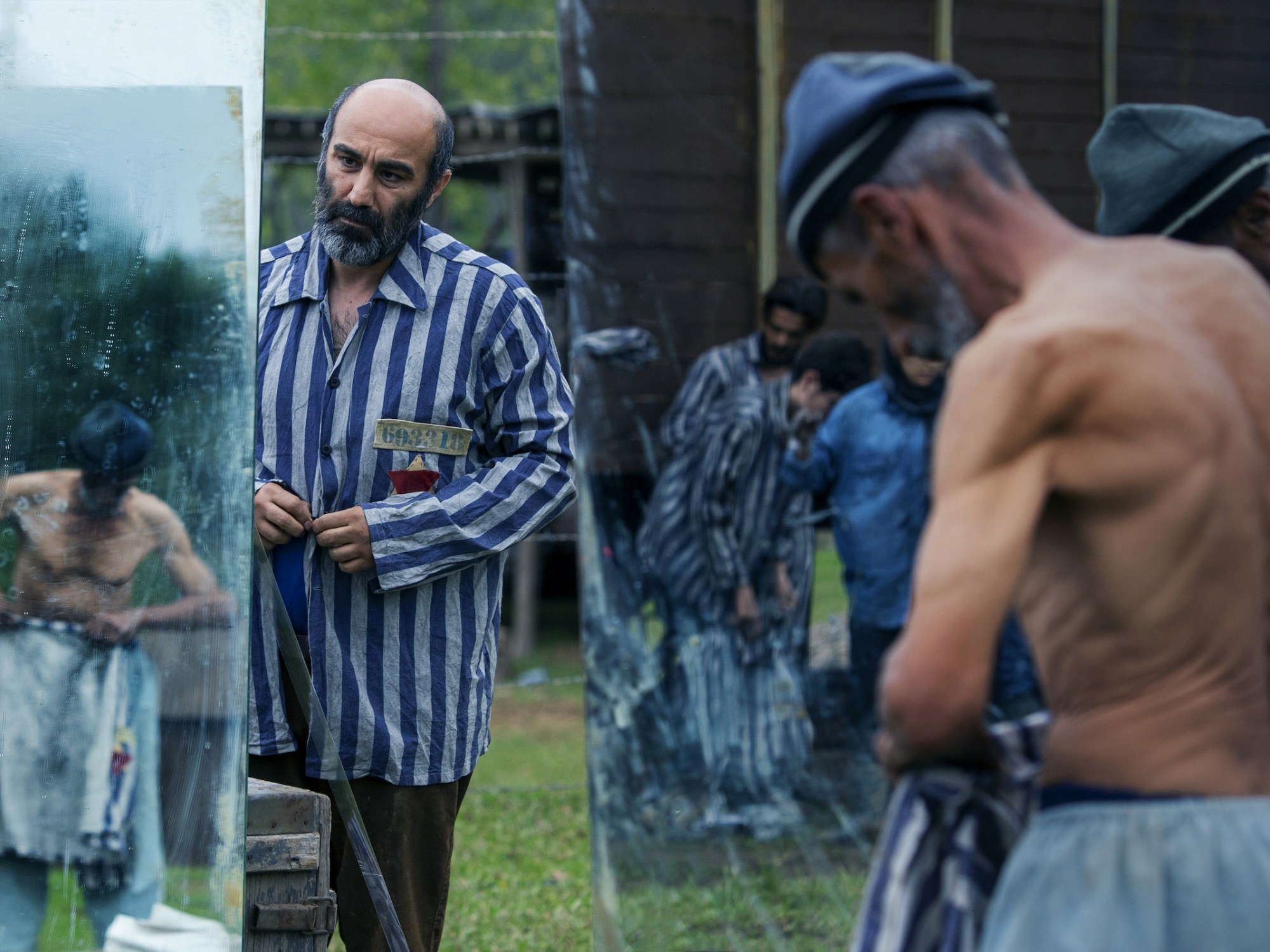
- Golden Globe Awards
World War III (Iran)
World War III is an Iranian thriller drama that begins as a black comedy and becomes darker as the story goes on.
Directed, co-written, produced, and edited by Houman Seyyedi, the film is about Shakib (Mohsen Tanabandeh), a homeless day laborer who lost his wife and son in an earthquake years ago and is now working as a construction worker on a film about the atrocities committed by Hitler during World War II.
Shakib is drafted as an extra in the movie and gets his big break when he is given the major role of portraying, of all people, Adolf Hitler when the original actor cast for the role collapses. He is then provided a temporary house, which is the fake mansion on the set, during the filming.
Conflict and even tragedy arise when his lover, the deaf prostitute Ladan (Mahsa Hejazi), insists that she lives in the house as she sees Shakib’s new job as an opportunity to escape her violent pimp.
The sixth feature of Seyyedi won the Orizzonti Award for Best Film as well as the Orizzonti Award for Best Actor for Tanabandeh at the 79th Venice Film Festival. Recently, the film also won the Snow Leopard Special Jury Award at the 8th Asian World Film Festival. It also won the Snow Leopard Award for Best Actor for Tanabandeh.
In an email interview with director Seyyedi, he discussed the most challenging aspect of making the movie. He said, “The most important goal was to maintain the tone of the movie so it would successfully move through a dangerous narrow line, being both comic and bitter as life at the same time.”
He added, “When we talked about the Holocaust, we had to be especially careful not to question the authenticity of the human tragedy. Therefore, it was very difficult for me to work within this framework. The challenge was to achieve all of this and not deviate from my point.”
Asked what he hoped audiences would get after watching the movie, the 42-year-old filmmaker from Rasht, Iran, said, “I liken my movie to a mirror!
“It would be more than enough for me if people looked at themselves even for a moment and questioned what our share is in forming the structure of any dictatorship! Or to what extent that we ourselves are dictators.”